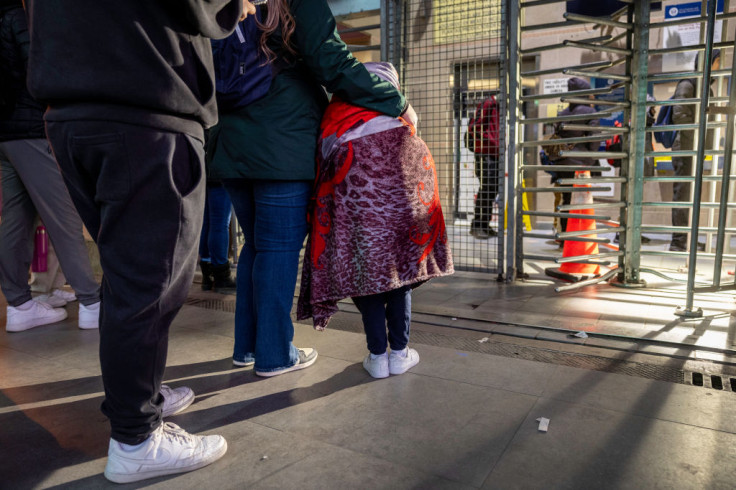
Mexican officials announced Friday that more than 75,000 Mexican nationals have been repatriated as of July 31, following President Donald Trump's return to the White House on Jan. 20.
At a morning press conference, Interior Secretary Rosa Icela Rodríguez said the federal government continues to support those deported or who returned voluntarily by providing food, access to phone calls, legal guidance, and bus tickets to help them reach their hometowns.
Rodríguez said that of the 75,914 people who have returned to Mexico, more than 36,000 passed through assistance centers in border states. Another 13,978 arrived by air at airports across the country, where they received help through the México te abraza ("Mexico Embraces You") program, an initiative launched earlier this year by President Claudia Sheinbaum that offers access to social services, transportation, job placement, and a prepaid card loaded with $98 for personal expenses.
"The goal is to welcome and address the needs of our fellow citizens," Rodríguez said. "But also to guarantee and respect the exercise of their human rights. I should add that this strategy has the support of the state governments where the assistance centers have been established," she added.
While campaigning, Trump vowed to launch "the largest mass deportation in U.S. history." Six months into his second term, federal immigration agencies have not consistently released detailed deportation data.
However, a CBS News report published in late July revealed that Immigration and Customs Enforcement (ICE) has carried out 150,000 deportations, while Customs and Border Protection (CBP) reported more than 112,000 removals during the same period. The report also noted that roughly 13,000 people chose to self-deport.
Tricia McLaughlin, the Department of Homeland Security's chief spokesperson, confirmed that since President Trump took office, the administration has documented over 280,000 total repatriations and self-deportations, including those beyond ICE's operations.
According to data from Mexican authorities, of the more than 75,000 nationals who have returned, 16,000 have been transported to their communities of origin with federal support. In addition, more than 43,000 people have received bus fare discounts.
The states with the highest number of returning nationals include Coahuila, Durango, Zacatecas, Querétaro, Aguascalientes, Mexico City, Michoacán, Jalisco, Guerrero, Oaxaca, Chiapas and Puebla.
Rodríguez said that shelters along the northern border will continue to assist repatriated individuals as the Trump administration's immigration crackdown unfolds.
"The president reminds us constantly that our countrymen are honest people who worked hard abroad to support their families and have contributed to both the U.S. economy and their homeland," Rodríguez said. "We take every opportunity to let them know they are not alone."
At the current pace, total deportations could reach 300,000 by the end of the year—making it the highest annual figure since 2014, when the Obama administration recorded 316,000 removals. The all-time peak was in 2012, with approximately 410,000 deportations.
© 2025 Latin Times. All rights reserved. Do not reproduce without permission.







